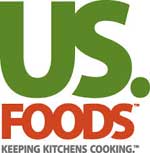 When Sysco and US Foods announced their merger last December, the question on the minds of many was how this could be possible. After all, weren’t these two the only real players in the business of national scale? Wouldn’t it raise insurmountable antitrust concerns?
When Sysco and US Foods announced their merger last December, the question on the minds of many was how this could be possible. After all, weren’t these two the only real players in the business of national scale? Wouldn’t it raise insurmountable antitrust concerns?
 Now the announcement has come out that the FTC, rather than the Justice Department, will be leading the antitrust review of the merger. This is a mixed bag for the companies. The FTC process is more convoluted and the FTC can take administrative measures to stop a merger. The Justice Department is more straightforward and can only move for an injunction, but, as of late, the Justice Department has been tougher on letting mergers through.
Now the announcement has come out that the FTC, rather than the Justice Department, will be leading the antitrust review of the merger. This is a mixed bag for the companies. The FTC process is more convoluted and the FTC can take administrative measures to stop a merger. The Justice Department is more straightforward and can only move for an injunction, but, as of late, the Justice Department has been tougher on letting mergers through.
The key question is likely to be how the FTC defines “the market.” When the government tried to block the merger of Whole Foods and Wild Oats, which we wrote about in a piece titled FTC May Block Whole Foods From Buying Wild Oats, it did so because it defined a market of natural food chains as distinct from food retailers.
We thought this was a mistake; consumers could get natural foods at Safeway, Kroger, Costco , Wal-Mart and Amazon.com, to name just a few. There was no basis for saying that just because there was consolidation between these two chains, consumers would be subject to monopoly pricing. Still the government saw things differently and fought the merger.
If the market is consolidation in food distribution, then the merger should sail through. After all, from the Hunts Point Market to self-distribution to a panoply of regional players, there are no shortages of ways to get food from place to place. The combined Sysco/US Foods sales would be about $65 billion a year — a big company indeed, but a fraction of the multi-trillion dollar food industry — and these distributors sell lots of non-food items, such as plates, napkins, forks, etc., as well. Even for the formal foodservice distributor sector, which has sales in excess of $200 billion, that is hardly a monopoly.
However, if you were to look only at broadline distributors that are able to offer a multi-city network of their own facilities – the market shrinks fast. Then some government analyst could well see “the market” as small and becoming basically monopolized by a merger. The big challenge for this interpretation, though, is that only large operators with multiple locations in multiple cities care whether a company can offer national distribution.
So you wind up with a logic that says we have to prevent a merger so that Darden, Hilton and McDonald’s won’t be abused. Yet these companies have the heft to set up alternative distribution channels if Sysco tries to raise prices unduly. These big customers have not raised public objections to the merger, making one think that they see themselves as possible beneficiaries of greater efficiency by the new Sysco, rather than potential victims of price gouging.
The popular bet among experts is that the FTC will let the merger go through but require divestitures in some overlapping markets. Perhaps. But the whole issue will come down to the FTC’s definition of the “relevant market,” and there the Administration’s general suspicion of business could throw things in favor of a narrow definition of the market, which could lead to another Wild Oats/Whole Foods-type battle.






